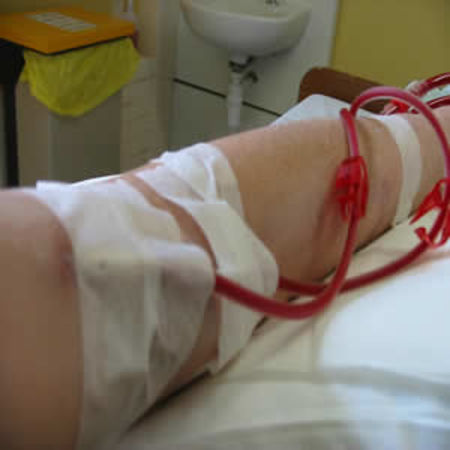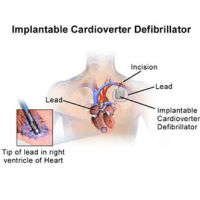Dr. Akiyoshi Hashimoto, a cardiologist at Sapparo Medical University in Japan has developed a test that can predict sudden death in haemodialysis patients. The test uses a combination of nuclear medicine, C-reactive protein and ECG. The method was presented at ICNC 12 in Madrid, Spain.
Dr Hashimoto explains that haemodialysis patients are at a higher risk of sudden cardiac death since many of these patients have latent ischaemic heart disease which reduces blood flow to the heart. They do not have any clinical signs or symptoms and thus it becomes very difficult to predict a future heart attack.
He highlights the need for ischaemic heart disease to be diagnosed at an early stage but exercise stress testing does not result in an accurate diagnosis for haemodialysis patients with multiple complications such as muscle weakness, osteoporosis and peripheral arterial disease.
Three methods were investigated, alone or in combination, to predict the risk of sudden cardiac death in haemodialysis patients. These included the nuclear medicine radioisotope technique called beta-methyl-p-iodophenyl-pentadecanoic acid (BMIPP) scintigraphy1 which measures fatty acid uptake by the heart; the ECG2 to assess the Q wave; and C-reactive protein3 to measure the levels in the blood.
677 patients from the multicentre, prospective cohort study B-SAFE were included in the study. The three tests were performed on the patients. During the 3 year follow up, 20 sudden cardiac deaths occurred. The analysis shows that patients who suffered sudden cardiac death were more likely to have abnormal BMIPP scintigraphy, abnormal Q wave and a greater C-reactive protein as compared to patients who did not experience it. No differences were found in other clinical, laboratory or haemodialysis parameters.
Patients with a BMIPP score greater than 16 had an 11-fold increased risk of sudden cardiac death. An abnormal Q wave had an 18-fold increased risk. A C-reactive protein level greater than 2.38 mg/dl had a 7-fold increased risk. Those patients who had two or three of these predictors had a sudden cardiac risk 145 times greater as compared to patients with normal levels on the three parameters.
Dr. Hashimoto explains that it is more effective to predict sudden cardiac death by combining these measures. "For the first time there is a way to predict sudden cardiac death in haemodialysis patients. In a clinical setting, BMIPP scintigraphy can be used in haemodialysis patients who are identified as high risk by abnormal Q wave and increased C-reactive protein. Abnormal BMIPP identifies specific myocardial injury which could be an effective therapeutic target for preventing sudden cardiac death."
Source: European Society of Cardiology
Image Credit: Wikimedia Commons



























